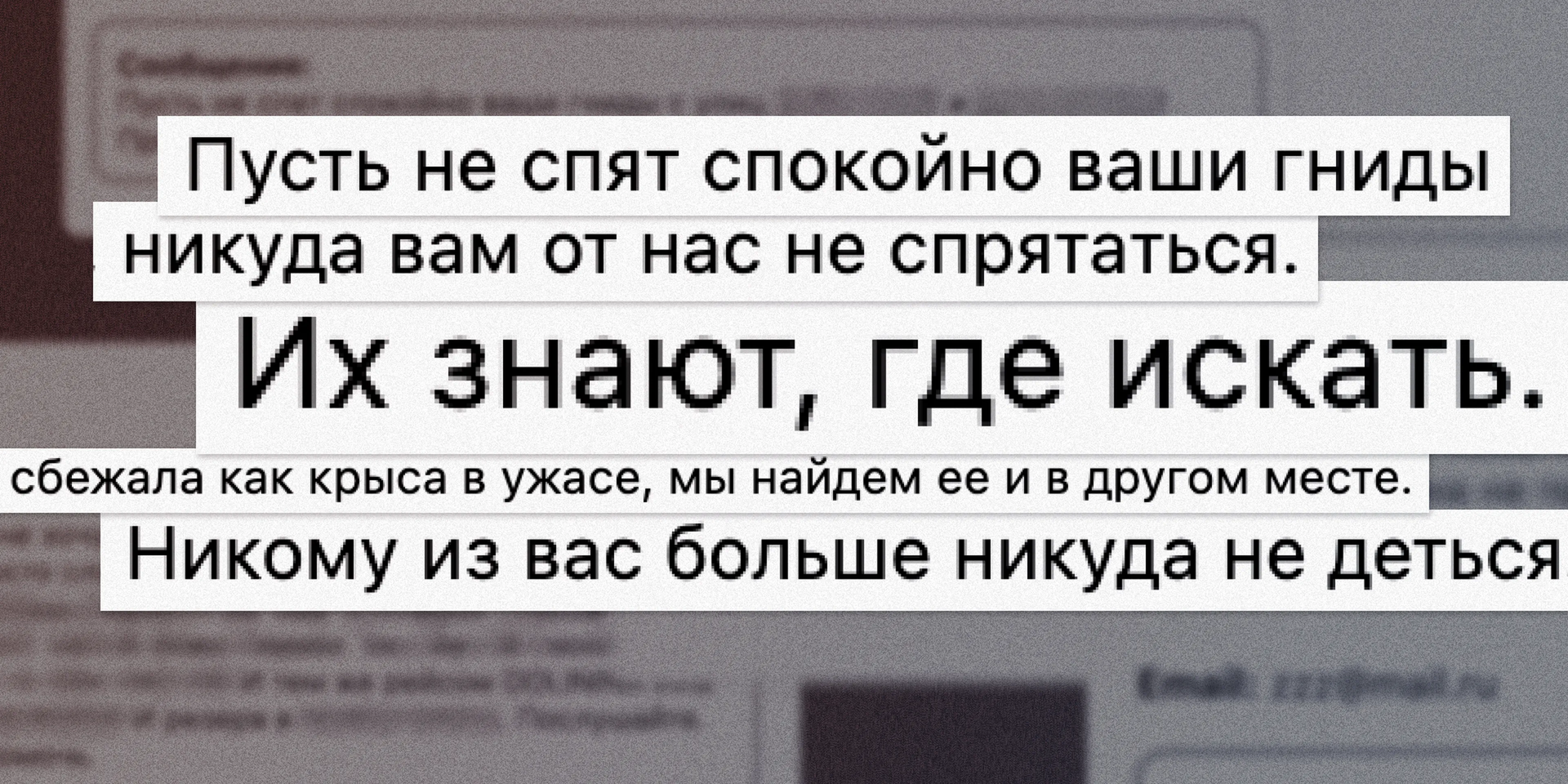“May Your Nits Not Sleep in Peace!” Unidentified People Threatening IStories’ Journalists for More than Half a Year
The threats’ senders made it clear that they knew the residential addresses of our journalists, were stalking them in Prague, Czech Republic and could even track their flights

This story is also available in Russian here.
“It’s known where to look for them. Trust me”
On March 3, 2023, at half past two in the morning, some anonymous person(s) sent a message via the feedback form on the IStories’ website: “May your nits from the streets of (name) and (name) not sleep in peace! Hello to them!”
Alesya Marokhovskaya and Irina Dolinina, IStories’ journalists, lived in the streets mentioned in the message at the time. After the beginning of Russia’s full-scale invasion of Ukraine, IStories, like other independent Russian media outlets, was forced to leave Russia in order not to be subject to military censorship and not to jeopardize the life and freedom of its journalists. Most of the editorial staff moved to Prague.
The home addresses of Dolinina and Marokhovskaya are not public information, but the threats’ sender somehow managed to find out where the journalists lived. He signed his message with the name “Yevgeny P.” and indicated his email address: zzz@mail.ru.
The second threat came on August 24, again via the feedback form. The sender made it clear that he was aware of Marokhovskaya’s move to another apartment: “Rest assured, you can’t hide from us anywhere. We know your scumbag ran away like a rat in terror, we will find her elsewhere. She’s not anywhere to go and she’ll have to answer for every lie and evil thing she’s said. For every word she’s said. We’ll find her wherever she walks her wheezing dog. None of you can hide anywhere now.”
The threats’ sender let it be known that he was stalking Marokhovskaya in Prague: the journalist actually has a dog that often makes wheezing-like sounds due to breathing problems. The letter contained the same email address: zzz@mail.ru.
We did not publicly talk about these threats earlier because, firstly, we perceived them as part of our work and a kind of recognition of our own merits; secondly, because compared to the horror that our colleagues from Ukraine go through every day, we saw these threats as something annoying, but not critical.
However, last week we received another batch of threats against Dolinina and Marokhovskaya. And this time we decided to go public, because we believe: this information can help not only the Russian journalists who have left, but also other people whom Putin’s regime considers its enemies.
On September 19, Dolinina and Marokhovskaya planned to fly to the Swedish city of Gothenburg for an investigative journalists’ international conference. On September 14, another threat came through the feedback form: “You know who to tell this to: they can’t go to Gothenburg. Not even for a day. It’s known where to look for them. Trust me.”
The next day, another message came from the same sender: “Take it seriously. I don’t want to scare you. I want to help. Tickets, hotel — everything is known. These are not just words…” — followed by all the details of flight and hotel reservations in the names of Marokhovskaya and Dolinina.
It is unlikely that the threatener obtained this data from the journalists’ computers — at least, he would have had to hack into both devices to do so. According to a former employee of a European intelligence service, the threateners are likely to work for the Russian state and have constant access to data on passengers’ flights within the European Union.
“It could be FSB officers or people associated with them. Often the FSB acts with the hands of local organized crime. Such intimidation tactics are similar to the style of Russian security forces to create pressure and psychologically abuse journalists,” suggests the IStories’ source, who has specialized in countering the security services of Russia and Belarus abroad for more than 15 years.
“Don’t come home so late again”
Recently, Russian journalists and activists have increasingly faced threats abroad. “You arrive and think that you are on vacation. That it’s like paradise here. Nobody even thinks that one should be careful. We have political assassinations going on. We have Russian security services operating,” German police officers scolded journalist Elena Kostyuchenko. In October 2022, Kostyuchenko, according to her, was poisoned in Munich. Natalia Arno, head of the Free Russia Foundation, and Irina Babloyan, a journalist for Echo of Moscow, complained of the same symptoms, similar to those of poisoning with a neurotoxic chemical.
Since April 2023, The Insider journalist Marfa Smirnova has also received regular threats: for example, she was sent a wiretap of her family’s apartment in Moscow.
IStories also found that human rights activist Maria Chashchilova, who has been living in Riga since the beginning of Russia’s full-scale invasion of Ukraine, faced threats. In June 2023, Chashchilova received a message in Telegram from a stranger: “Not afraid? I know where you live.” Attached to the message was a picture of the intercom in Chashchilova’s house and the code for it.
Chashchilova asked the threatening person what exactly she should be afraid of. In response, she received a voicemail message with a distorted voice saying, “Did you bitch think you were going to hide?”
On the same day, Chashchilova returned home after work late at night. At that time, she received another text message from the same sender: “Be aware, don’t come home so late again. Be careful.”
Chashchilova is investigating sexualized crimes by the Russian military in Ukraine and helping those affected by them.